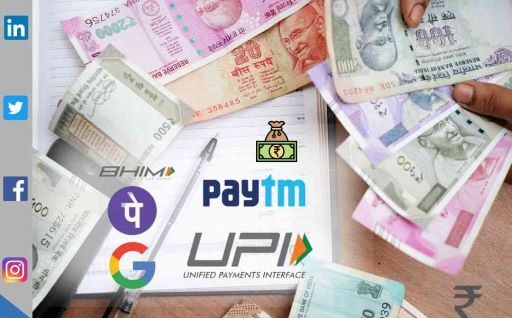It has been announced that Unified Payments Interface (UPI) transactions will now cost more. This has left many people wondering who will pay for these charges and what the fees will be. In this article, we will explore the details of these changes and what they mean for consumers and businesses.

Firstly, let’s understand what UPI is. UPI is a real-time payment system developed by the National Payments Corporation of India (NPCI). It allows users to transfer money from one bank account to another without the need for traditional banking information like account number and IFSC code. UPI has gained significant popularity in India due to its ease of use and convenience.
Now, coming to the changes. The NPCI has announced that starting from April 1, 2023, UPI transactions will incur a fee of a 1.1% on UPI merchant transactions exceeding Rs 2,000 per transaction. The interchange fee will be levied only on specified merchant transactions of above Rs 2,000. This fee will be charged to the payment service providers (PSPs) who facilitate the transactions, and they will have the option to pass on the charges to the end-users or absorb them themselves.
This means that consumers and businesses using UPI may have to pay additional fees for their transactions. The fees may seem small, but they can add up, especially for businesses that deal with a large volume of transactions. The decision to pass on the fees to the end-users will be at the discretion of the payment service providers, and some may choose to absorb the charges themselves to remain competitive in the market.
However, it’s worth noting that these charges are not unprecedented. Other payment systems like the Immediate Payment Service (IMPS) and National Electronic Funds Transfer (NEFT) already charge fees for their transactions, and UPI was initially introduced as a free payment system to encourage its adoption.
So, who will pay for the charges? It depends on the service provider and their business models. If they choose to pass on the fees to the end-users, consumers and businesses will have to bear the additional costs. However, if the payment service providers absorb the charges themselves, there may be no impact on the end-users.
UPI transactions will now come with a small fee starting from April 1, 2023. The fees will be charged to the payment service providers, who will have the option to pass on the charges to the end-users or absorb them themselves. While this may increase the cost of using UPI, it’s important to remember that other payment systems already charge fees for their transactions. Consumers and businesses should keep an eye on their transaction costs and choose payment service providers that offer the best value for money.
Here are some frequently asked questions about UPI transactions
- Ques: What is UPI?
Ans: UPI stands for Unified Payments Interface. It is a real-time payment system developed by the National Payments Corporation of India (NPCI) that allows users to transfer funds between bank accounts instantly using a mobile device.
- Ques: How does UPI work?
Ans: To use UPI, you need to download a UPI-enabled mobile app and link your bank account(s) to it. Once your account is linked, you can use the app to send and receive money, pay bills, and make other transactions. To make a transaction, you simply enter the recipient’s UPI ID or bank account details, enter the amount, and confirm the transaction.
- Ques: Is UPI safe?
Ans: Yes, UPI is considered a safe and secure method of payment. UPI transactions are encrypted and require a PIN or biometric authentication to complete. Additionally, UPI uses two-factor authentication to ensure that only authorized users can access the system.
- Ques: Are there any fees for using UPI?
Ans: Most banks and UPI-enabled apps do not charge fees for UPI transactions. However, some apps may charge a fee for certain types of transactions, such as bill payments or merchant transactions.
- Ques: What are the transaction limits for UPI?
Ans: The transaction limits for UPI depend on the bank and the app you are using. Most banks and apps have a daily transaction limit of Rs. 1 lakh per day for UPI transactions.
- Ques: Can UPI be used for international transactions?
Ans: No, UPI is currently only available for domestic transactions within India.